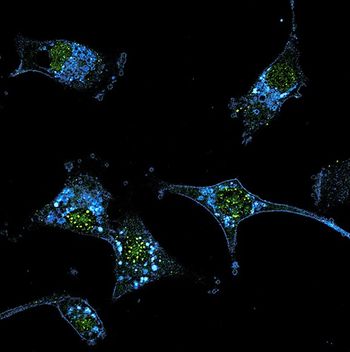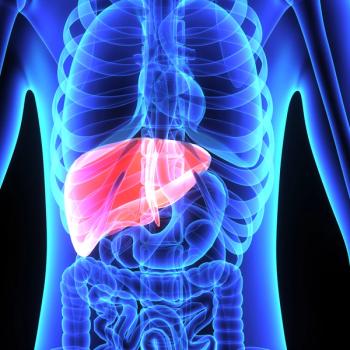
Based on results of a cohort study that examined randomized clinical trials in 3 times periods, it is evident that efficacy measures and funding sources have dramatically changed over time.

Your AI-Trained Oncology Knowledge Connection!


Based on results of a cohort study that examined randomized clinical trials in 3 times periods, it is evident that efficacy measures and funding sources have dramatically changed over time.

Follow-up of 4.8 years to a phase 1 trial demonstrated that deep and durable responses are attainable in a large cohort of children and young adult patients with B-cell acute lymphoblastic leukemia who were treated with CD19-directed CAR T-cell therapy followed by allogeneic hematopoietic stem cell transplantation.

HIPEC of paclitaxel and cisplatin during surgical debulking of advanced epithelial ovarian cancer appears to be superior to cisplatin alone, according to findings from a single-institution study.

When compared against nivolumab alone, relatlimab plus nivolumab delayed progression in patients with unresectable stage III and IV untreated melanoma.

The Virtual Nodule Clinic artificial intelligence–powered clinical decision support tool was cleared by the FDA for detection of early-stage lung cancer in lung nodules detected by a CT scan.

Novartis announced that its investigational targeted radioligand therapy 177Lu-PSMA-617 demonstrated statistically significant improvements in overall and radiographic progression-free survival versus standard-of-care therapy in patients with progressive PSMA-positive metastatic castration-resistant prostate cancer.

Based on positive overall and progression-free survival data from the phase 3 KEYNOTE-590 trial, pembrolizumab was approved by the FDA for use in patients with metastatic or locally advanced esophageal or gastroesophageal junction carcinoma.

In a phase 1 trial, the recommended phase 2 dose of glofitamab resulted in frequent and durable complete responses for patients with follicular lymphoma and transformed diffuse large B-cell lymphoma arising from follicular lymphoma.

Results of the phase 3 IMpower010 trial have demonstrated that adjuvant atezolizumab for patients with stage IB to IIIA non–small cell lung cancer leads to increased disease-free survival versus best supportive care for patients with high PD-L1.

Following a prior announcement that the phase 3 KEYNOTE-775 trial met both primary end points of progression-free and overall survival benefit, data for the pembrolizumab/lenvatinib combination were presented at the Society of Gynecologic Oncology 2021 Annual Meeting on Women’s Cancer.

Based on a single-institution study, investigators were able to correlate outcomes for unresectable colorectal liver metastases with the addition of hepatic arterial infusion pump therapy to systemic therapy to the presence of a mutation in KRAS.

A selective internal radiation therapy from Boston Scientific Corporation, TheraSphere Y-90 Glass Microspheres, was granted FDA approval for the treatment of unresectable hepatocellular carcinoma.

A novel imaging technology was cleared by the FDA to detect polyps with neoplastic potential during conduct of colonoscopy that aligns with pathological assessment with greater than 90% predictive ability.

Recently reported results from the ongoing phase 1 TUNINTIL trial of the oncolytic virus TILT-123 show safety of this approach.

The FDA accepted a new drug application for belzutifan to treat von Hippel-Lindau disease¬–associated renal cell carcinoma and granted it priority review based on response rate results from a phase 2 trial.

Based on promising responses seen across several clinical trials of poziotinib in patients with non–small cell lung cancer and exon 20 mutations in HER2, the FDA granted the therapy fast track designation.

Promising overall survival results lead to an early stop to a phase 3 trial of cemiplimab versus chemotherapy in relapsed/refractory cervical cancer, according to the drug’s developer.

Scott G. Hubosky, MD, of Jefferson University Hospitals, discussed methods of treating patients with upper tract urothelial carcinoma at the 2021 New York GU 14th Annual Interdisciplinary Prostate Cancer Congress®.

Indications for pembrolizumab, nivolumab, and atezolizumab are set for examination under the FDA’s Oncologic Drugs Advisory Committee for indications granted accelerated approval in breast, urothelial, gastric, and liver cancers.

A phase 2 trial of single-agent AFM13, a bispecific tetravalent innate cell engager that binds to CD30, will continue following positive results of a preplanned interim futility analysis.

Based on results of the phase 3 TIVO-3 trial in patients who have previously received at least 2 lines of therapy for renal cell carcinoma, the FDA granted approval to tivozanib for use in this patient population.

The liquid biopsy assay RaDaR has been given a breakthrough device designation for use in the detection of minimal residual disease in early-stage cancers.

Mandar Aras, MD, PhD, discussed the management and prevention of cardiotoxicity in patients receiving systemic therapy for breast cancer at the 38th Annual Miami Breast Cancer Conference, hosted by Physicians’ Education Resource®, LLC.

Novartis’ investigational interleukin-1β inhibitor canakinumab plus docetaxel failed to show a survival benefit in patients with previously treated locally advanced or metastatic non–small cell lung cancer, but other trials examining its efficacy remain ongoing.

Susan B. Kesmodel, MD, FACS, of the University of Miami, describes 3 methods by which breast surgical oncologists can strategize to reduce the incidence of lymphedema in patients undergoing surgery for breast tumors.

As part of an industry-wide assessment of indications based on accelerated approval, Roche in consultation with the FDA has decided to withdraw the indication for atezolizumab in patients with urothelial carcinoma following platinum-based chemotherapy.

Data from the phase 2 ZUMA-5 trial supported the approval of axicabtagene ciloleucel, a chimeric antigen receptor T-cell therapy, as a treatment for patients with follicular lymphoma in the third-line setting.

At the Miami Breast Cancer Conference, Debu Tripathy, MD, reviewed adaptive therapy for the adjuvant treatment of patients with HER2-positive, early-stage breast cancer.

More patients with early-stage estrogen receptor–positive breast cancer with high recurrence scores received chemotherapy following radiation in a single-institution study, and this resulted in a low recurrence rate across all patients examined.

A new drug application for pafolacianine sodium injection was granted priority review by the FDA for use in detecting ovarian cancer lesions during surgical procedures.